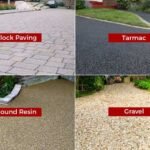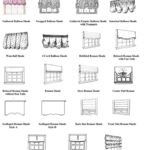Alternatives to Wooden Decking: Top Choices for Your Home

When it comes to enhancing the aesthetic appeal and functionality of your outdoor living space, decking is a popular choice. Traditionally, wood has been the go-to material for decking due to its natural beauty and durability. However, with the advent of new materials and technologies, homeowners now have a plethora of alternatives to wooden decking to choose from. These alternatives not only offer a unique look and feel but also come with their own set of benefits and drawbacks. In this article, we will delve into some of the top choices for your home, including composite decking, PVC decking, aluminum decking, bamboo decking, rubber paver tiles, and interlocking deck tiles.
Understanding Composite Decking
Composite decking is one of the most popular alternatives to wooden decking. It is made from a blend of wood fibers and plastic, which gives it the appearance of real wood while offering the durability and low maintenance of plastic. Composite decking is resistant to rot, decay, and insect damage, making it a long-lasting option for homeowners. It is also available in a wide range of colors and finishes, allowing you to customize your deck to match your home's exterior design.
However, composite decking does come with a few drawbacks. For one, it can be more expensive than traditional wood decking. Additionally, while it is resistant to many common issues that plague wood decks, it can still fade and stain over time. It can also get hot under the sun, which can make it uncomfortable to walk on during hot summer days. Despite these drawbacks, composite decking remains a popular choice for homeowners looking for a durable and low-maintenance alternative to wood.
Benefits and Drawbacks of PVC Decking
PVC decking is another popular alternative to wooden decking. Made from 100% plastic, PVC decking is highly resistant to moisture, rot, and insect damage. It is also very low maintenance, requiring only occasional cleaning to keep it looking its best. Like composite decking, PVC decking is available in a wide range of colors and finishes, making it easy to match your deck to your home's exterior design.
One of the main benefits of PVC decking is its durability. Unlike wood, which can warp, crack, or splinter over time, PVC decking maintains its shape and appearance for many years. It is also lightweight, making it easier to install than other decking materials. However, like composite decking, PVC decking can get hot under the sun, which can make it uncomfortable to walk on during hot summer days. It can also be more expensive than traditional wood decking. Despite these drawbacks, PVC decking is a great option for homeowners looking for a durable and low-maintenance alternative to wood.
Why Choose Aluminum Decking?
Aluminum decking is a less common but highly effective alternative to wooden decking. It is extremely durable, resistant to rot, decay, and insect damage, and requires very little maintenance. Aluminum decking is also fire-resistant, making it a safe choice for homes in areas prone to wildfires. It is available in a variety of colors and finishes, allowing you to customize your deck to match your home's exterior design.
One of the main benefits of aluminum decking is its longevity. Unlike wood or composite decking, which can fade and stain over time, aluminum decking maintains its color and finish for many years. It is also lightweight and easy to install, making it a convenient option for homeowners. However, aluminum decking can be more expensive than other decking materials, and it can get hot under the sun, making it uncomfortable to walk on during hot summer days. Despite these drawbacks, aluminum decking is a great option for homeowners looking for a durable, low-maintenance, and fire-resistant alternative to wood.
Exploring the Potential of Bamboo Decking
Bamboo decking is a unique and eco-friendly alternative to wooden decking. Made from the fast-growing bamboo plant, bamboo decking is a sustainable choice for environmentally conscious homeowners. It is also highly durable, resistant to rot, decay, and insect damage, and requires very little maintenance. Bamboo decking is available in a variety of colors and finishes, allowing you to customize your deck to match your home's exterior design.
One of the main benefits of bamboo decking is its sustainability. Unlike traditional wood decking, which requires the cutting down of trees, bamboo decking is made from a renewable resource that grows back quickly after harvesting. It is also highly durable, making it a long-lasting option for homeowners. However, like other decking materials, bamboo decking can be more expensive than traditional wood decking, and it can fade and stain over time. Despite these drawbacks, bamboo decking is a great option for homeowners looking for a sustainable and durable alternative to wood.
Introduction to Rubber Paver Tiles
Rubber paver tiles are a unique and versatile alternative to wooden decking. Made from recycled rubber, these tiles are a sustainable choice for environmentally conscious homeowners. They are also highly durable, resistant to rot, decay, and insect damage, and require very little maintenance. Rubber paver tiles are available in a variety of colors and finishes, allowing you to customize your deck to match your home's exterior design.
One of the main benefits of rubber paver tiles is their versatility. Unlike traditional decking materials, which require a flat surface for installation, rubber paver tiles can be installed on any surface, including grass, sand, and gravel. They are also easy to install and remove, making them a convenient option for homeowners. However, like other decking materials, rubber paver tiles can be more expensive than traditional wood decking, and they can fade and stain over time. Despite these drawbacks, rubber paver tiles are a great option for homeowners looking for a versatile and sustainable alternative to wood.
Interlocking Deck Tiles: A Versatile Option
Interlocking deck tiles are a versatile and easy-to-install alternative to wooden decking. These tiles are designed to interlock with each other, making installation a breeze. They are also highly durable, resistant to rot, decay, and insect damage, and require very little maintenance. Interlocking deck tiles are available in a variety of materials, including wood, composite, and plastic, allowing you to choose the material that best suits your needs and preferences.
One of the main benefits of interlocking deck tiles is their ease of installation. Unlike traditional decking materials, which require a lot of time and effort to install, interlocking deck tiles can be installed quickly and easily, making them a convenient option for homeowners. They are also highly versatile, allowing you to create a custom design for your deck. However, like other decking materials, interlocking deck tiles can be more expensive than traditional wood decking, and they can fade and stain over time. Despite these drawbacks, interlocking deck tiles are a great option for homeowners looking for a versatile and easy-to-install alternative to wood.
There are many alternatives to wooden decking available for homeowners today. Each of these alternatives offers its own set of benefits and drawbacks, and the best choice for you will depend on your specific needs and preferences. Whether you're looking for a durable and low-maintenance option like composite or PVC decking, a fire-resistant option like aluminum decking, a sustainable option like bamboo decking or rubber paver tiles, or a versatile and easy-to-install option like interlocking deck tiles, there's an alternative to wood decking that's perfect for your home.





Leave a Reply